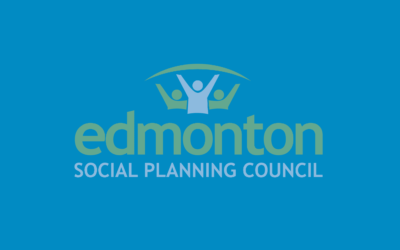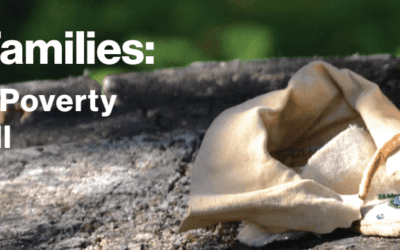fACTivist Feature Article: A Lesson from COVID-19 about Early Learning and Care

Note: this is excerpted from Summer 2020 edition of our fACTivist publication. The Edmonton Social Planning Council, in collaboration with volunteers and colleagues within the sector, strives to provide stakeholders and community members with updates on ESPC’s activities and projects, including articles and initiatives that address a variety of pertinent issues that affect our community.
Written by Jeff Bisanz
Stressful times create difficulties, but they also afford opportunities for learning. So far, stresses associated with the COVID-19 pandemic have caused us to learn, among other things, that how we respond to public health crises needs improvement, and that employment and family income are precarious in many parts of our economy. We also need to attend to the lessons of COVID-19 for our youngest citizens, their families, and those who care for them.
By now we all should realize that early learning and care for young children and their families is not only a nice option—it is a core component of our communities and our economy. This point is obvious to working parents with young children; to newcomer families who struggle to learn the culture and find jobs; to elementary school teachers who can see the benefits of high-quality early learning and care as children enter school; to employers whose employees miss work when they cannot find child care; and to economists who study the short- and long-term effects of early learning and care. The point was made obvious by our provincial government, which closed all early learning and care centres mid-March as a public health measure, but then, a fortnight later, encouraged some to re–open after realizing that many essential workers, such as health care professionals, cannot do their work unless they have access to child care.
We are now beginning to realize that there can be no economic recovery without early learning and care (Bezanson, Bevan, Lysack, & Hammer, 2020). Moreover, parents and communities should not, and will not, accept facilities, however safe, that simply warehouse their children. Child care options must be affordable and easily accessible, and they must be high in quality to support children’s social and intellectual well–being and development.
Affordability and accessibility have long been major concerns in Alberta, and the situation may well be worse after the pandemic. A combination of factors has created an enormous amount of uncertainty and financial stress for those who operate early learning and care centres. The contributing factors include lengthy closures, rules that (rightly) limit class sizes on reopening, ambiguity about compensation for safety precautions, uncertainty about staff retention and participation as parents struggle financially, and limited financial support to sustain centres during the public health emergency, as compared to other provinces.
Unless the picture changes, these financial burdens are likely to lead to increased costs (which work against affordability), cutting corners (which works against quality), and/or business failures (which work against accessibility). Quality is of particular concern. Prior to the pandemic, the provincial government decided to discontinue accreditation, an important means of monitoring and improving the quality of child care centres. Nothing was done to support quality during the pandemic and no plan has yet emerged to ensure high quality in the future.
So, do we try to return to normal, or do we recognize that the old normal was not really working all that well? Maybe the situation can be patched with adjustments to subsidies for low-income families, temporary financial incentives for operators, and minor revisions to legislation and regulations. Many long-time observers do not believe that these patches will work and, in fact, that we do not have a system of early learning and care at all, but rather a fragmented and, as COVID-19 has taught us, fragile patchwork of services that does not work well for a great many families. Our “system” is almost entirely market-driven, without the kind of overall planning and management that could provide stable, sustainable services through pandemics, economic downturns, and other disruptions. Such disruptions tend to compromise vulnerable families most severely, and it is precisely these families that tend to be most in need of early learning and care that is affordable, accessible, and high in quality.
The COVID-19 experience has underscored the reality that early learning and care is important for the well–being of our communities and our economy. An effective system of early learning and care requires appropriate public planning and management at a systemic level, as well as effective delivery by caring and well-educated providers—be they public, private, not–for–profit, or private for–profit. At various points in our history we evaluated other critical services, such as health care, education, policing, and firefighting. We decided that, for the sake of personal and community well–being, these services required appropriate public planning and management. The question now is whether we have the community and political leadership necessary to do the same for early learning and care.
Reference
Bezanson, K., Bevan, A., Lysack, M., & Hammer, K. (2020, April). From stabilization to stimulus and beyond: A roadmap to social and economic recovery. Retrieved from https://drive.google.com/file/d/1jplKknjy9ON_ItnbEtQTxW602AKTIhqJ/view
Jeff Bisanz is co-chair of the Edmonton Council for Early Learning and Care, a member of the Stewardship Round Table for EndPoverty Edmonton, and professor emeritus at the University of Alberta.


